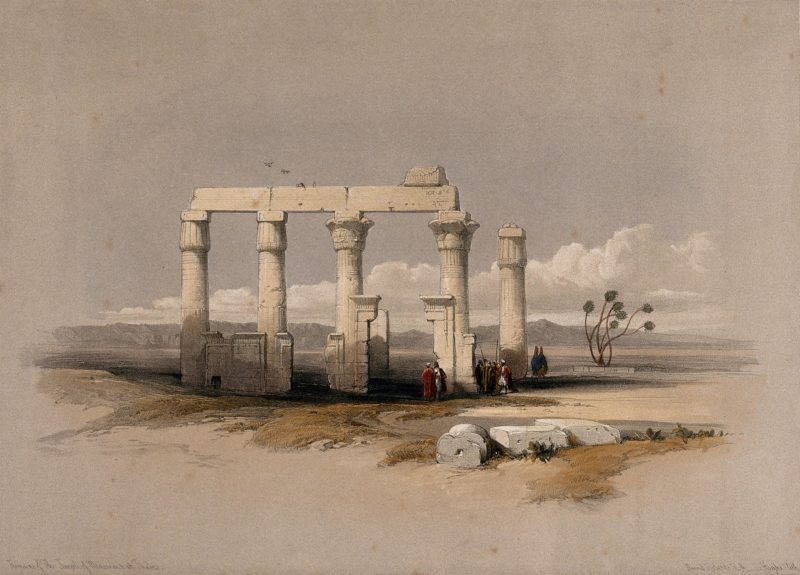To have been a thing, any thing, is marvelous, but to have been among the class of creatures capable of naming is a singular wonder. The Old English word dustsceawung means the acknowledgment of dust as once having been other things, living beings or civilizations past. It is what’s called a kenning, a metaphorical collage-like expression—dūst meaning “dust” and sċēawung meaning “contemplation.” Dust requires us to confront our own transience and eventual anonymity, and doing so demands a flexible, inventive use of language.
There is “ashes to ashes, dust to dust,” from the Book of Common Prayer. We prefer the idea that we are made of stardust, that fine powder of the universe, lending scientific credence to our cosmic nature. Dust jackets protect books from that which is described within their pages—the grime and mess of life. Baldwin said the mind is like an object that picks up dust (“The object doesn’t know, any more than the mind does, why what clings to it clings”); Picasso said that the purpose of art was to wash the dust of daily life off of the soul. Eliot promised to show us fear in a handful of dust, and he was on to something.
Dust is by turns violent and gentle. Dust bowls, storms that killed humans and livestock alike, devastated the Midwest in the 1930s, as if to drive the point of the Great Depression cruelly home. But we must also allow for a dusting of sugar or of snow. Dust makes visible what is too insubstantial to be seen on its own. Motes floating in the air reveal breathable currents and give shape to beams of light reaching us from millions of miles away. Its particles provide a tangible measure of time, how long it’s been since an object was handled. And, naturally, out of this, we’ve devised a polite domestic chore, equipped with a soft feathered prop. In this human life, we make a game of ridding ourselves of time’s evidence.
The speculative insight and human anxiety at the heart of dustsceawung should, to my mind, make the word a strong contender for modern adoption. The effort to accept dust as our fate takes a whole life, and all of literature. We wait for the dust to settle, but it never does.

